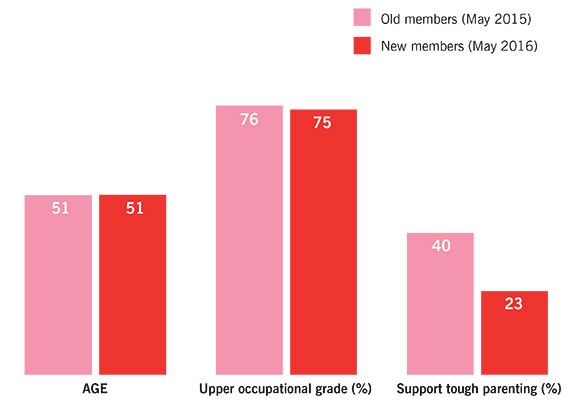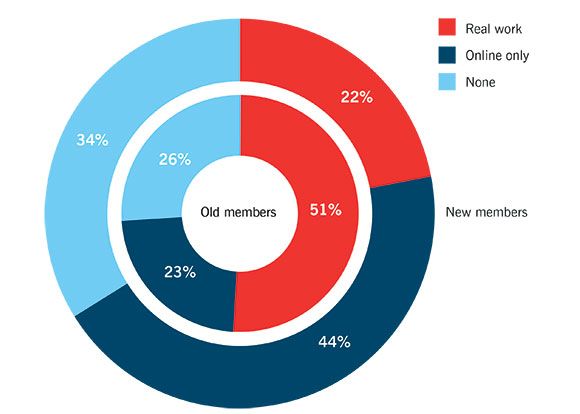Against the tide:
Party rolls had been falling for as long as anyone can remember—until Labour’s started rising
Membership of political parties has been dropping like a stone for decades. The chart shows that Tory membership has declined by around 90 per cent between 1970 and 2015, with Labour’s individual membership—which started out lower—falling nearly 80 per cent. Even before 2015, there were signs of change, especially in Scotland where the 2014 referendum triggered a remarkable seven-fold increase in SNP membership. Increases in the rolls of the Greens and Ukip soon followed. Then, after David Cameron’s unexpected outright win, new members flocked to Labour to take part in the election which took Jeremy Corbyn to the top. Many more have joined since, so that Labour membership is now more than half a million. That’s twice what it was, and more than double that of the Conservatives.
Source: House of Commons library

Something old, something new:
Labour’s new joiners are unremarkable in age and class terms, but are distinctly socially relaxed
Surveying Labour members before and after the “Corbyn surge” we found much in common between the old and the new. The average age was unchanged—at 51—and nor did the social class mix change, with three-quarters of both pre- and post-2015 members qualifying as “ABC1.” More of the new members were women (52 per cent compared to 38 per cent), and they lean a fraction—but only a fraction—further left on economic questions. The new members are, however, markedly more socially liberal—overwhelmingly against censorship and stiffer prison sentences and, as the chart shows, not inclined to tough parenting, as judged by the question of whether children must be taught “to obey authority.” A mere 23 per cent of the newbies take that view, against 40 per cent of established members.
Source: ESRC Party Members

New Labour, new lazy:
The Corbyn crew aren’t out on the doorstep yet
Most Labour MPs will give you the same story: the new members talk the talk but they don’t walk the walk—not if the walk involves knocking on doors anyway. They’re clicktivists, not activists. For once, the anecdotes are borne out by the data. We can divide members according to whether they campaign offline as well as online (leafletting and canvassing, or “real work” on the chart), online only (Facebook or Twitter) or not at all. Some important caveats apply: the new members haven’t fought a general election yet, so we’re only looking at local elections for them; it might take time to socialise then into getting out “on the doorstep.” Even so, some pretty marked differences emerge. If elections are now won and lost on social media, then no problem. But if Labour is relying on new members to boost its ground game in the next general election, it could be in for a big disappointment.
Source: ESRC Party Members













